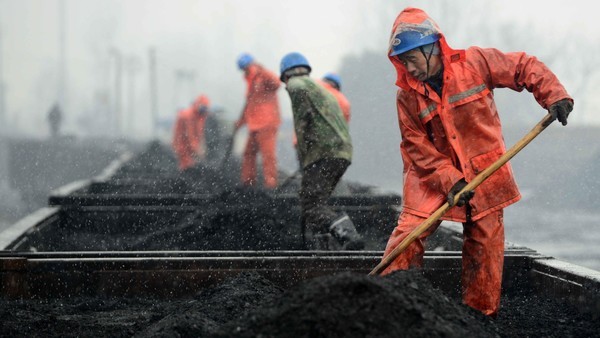Media Report

- Reuters reports: "China aims to lay off 5-6 million state workers over the next two to three years as part of efforts to curb industrial overcapacity and pollution, two reliable sources said, Beijing's boldest retrenchment program in almost two decades...The government plans to lay off five million workers in industries suffering from a supply glut, one source with ties to the leadership said. A second source with leadership ties put the number of layoffs at six million....The hugely inefficient state sector employed around 37 million people in 2013 and accounts for about 40 percent of the country's industrial output and nearly half of its bank lending. It is China's most significant nationwide retrenchment since the restructuring of state-owned enterprises from 1998 to 2003 led to around 28 million redundancies and cost the central government about 73.1 billion yuan ($11.2 billion) in resettlement funds."
- The Wall Street Journal reports: "Four local booksellers who had vanished and later reappeared in Chinese police custody said they illegally sold books to customers in mainland China and a fifth, a U.K. citizen, said he would give up his British 'residence rights,' according to televised interviews and Chinese news reports....While state broadcaster China Central Television has frequently aired confessions, this appears to be the first instance of a non-state-owned Chinese news outlet broadcasting these types of confessions."
- The Washington Post reports: "China's manufacturing outlook deteriorated in February, according to two surveys of factory activity released Tuesday, a day after Beijing loosened credit to counter sluggish conditions in the world's second biggest economy. An index based on an official survey of factory purchasing managers declined to 49.0 in February from 49.4 in January in the seventh straight month of contraction....Economists cautioned the numbers were distorted by the Lunar New Year holiday, which falls at different times in the first two months of the year. Factories typically stock up on raw materials and scramble to fill orders before shutting for an extended break that began this year in early February."
Calendar
- 2016-02-29 China expects to lay off 1.8 million workers in coal, steel sectors
- 2016-02-28 Dodging Critics & Soothing Fears, China Meets G-20 Goals
- 2016-02-26 China talks up growth agenda at G20 amid lack of wider policy unity
- 2016-02-25 U.S., China Agree to Sanction North Korea on Nuclear Program
- 2016-02-24 China says media ignores other claimants' weaponry in South China Sea
- 2016-02-23 China Appears to Have Built Radar Facilities on Disputed South China Sea Islands
- 2016-02-22 Beijing to Raise Threshold on Red Alerts for Smog
- 2016-02-21 China's Debt Seen Rising Through 2019, Peaking at 283% of GDP
- 2016-02-19 China accuses US of militarizing South China Sea
- 2016-02-18 Apple Pay Launches in China Where e-Payments Widely Used
News
- Reuters Exclusive: China to lay off five to six million workers, earmarks at least $23 billion
- The Wall Street Journal Hong Kong Booksellers Confess to Illegal Sales in China
- The Washington Post Chinese factories lose more momentum, surveys show
- The Guardian China's central bank attempts to boost economy with cash injection
- The New York Times What China Has Been Building in the South China Sea
- The Washington Post As China slashes coal jobs, miners protest in Party's revolutionary base
- Bloomberg Business China's PMI Reports Show Slowdown Deepening as Services Slip
- The Wall Street Journal China Shares Rise After Latest Monetary Easing
- The Washington Post Chinese pastor fired from provincial office over court case
- CNBC Official and Caixin factory activity gauges slow again in Feb, underlining need for RRR move
- Reuters Exclusive - Major powers team up to tell China of concerns over new laws
- The Wall Street Journal Ambitious Chinese Developers Plan Cities Abroad From Ground Up
- Bloomberg Business Hong Kong Bookseller Lee Confesses to Sneaking Into China
Commentary
- The New York Times: Sinosphere In a Harvard Scholar's 18th-Century History, Glimpses of Modern China
- The Diplomat India and the South China Sea Dispute
- The National Interest The Strategic Significance of China's Woody Island Power Play
- The Wall Street Journal: China Real Time Economists React: China's Manufacturing Weakened Sharply in February
- The Diplomat China to Launch Second Space Lab in 2016
- The Wall Street Journal: China Real Time Aging Workers, Slowing Productivity: China's Changing Demographics
- Indiewire China-US Summit: Cheryl Boone Isaacs, Gary Lucchesi, Bill Borden, and More Confirmed to Speak